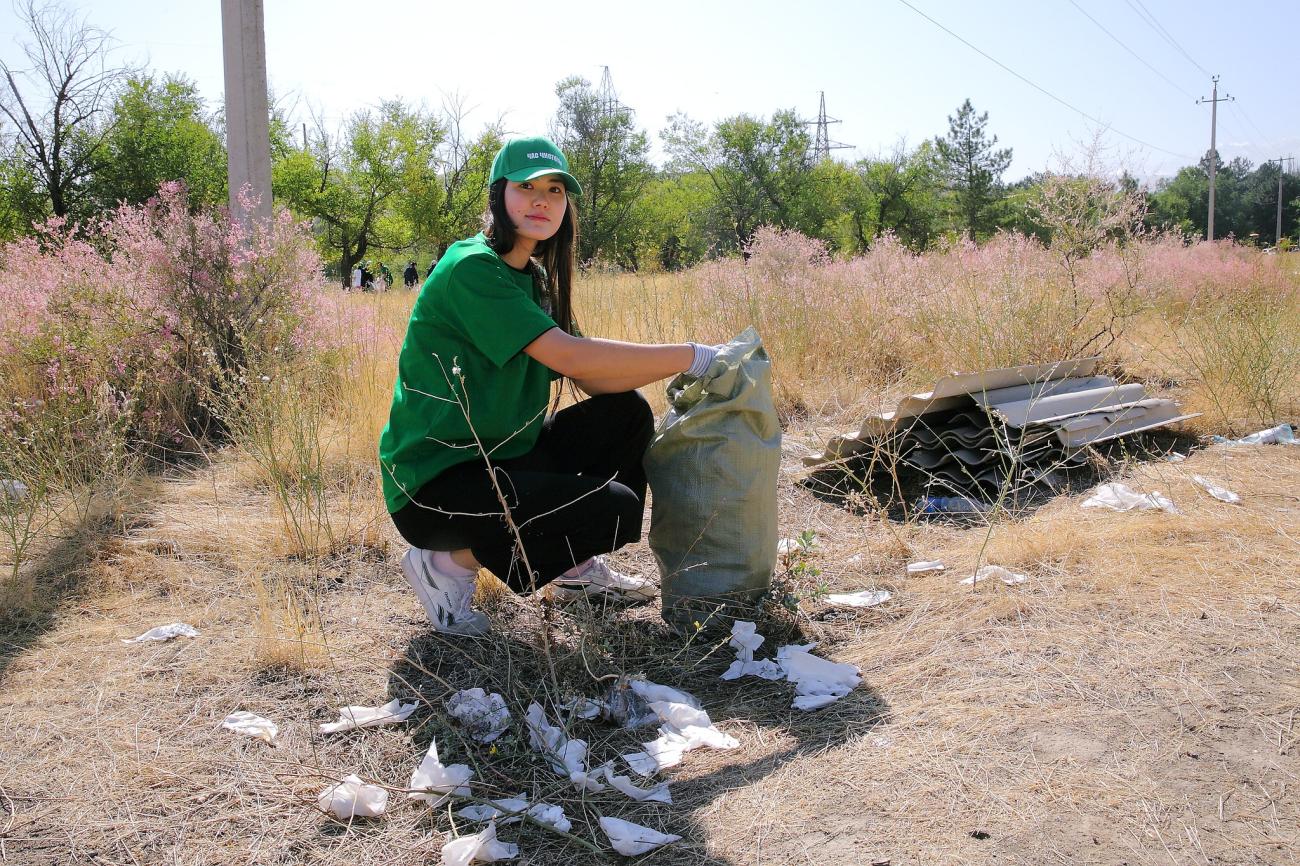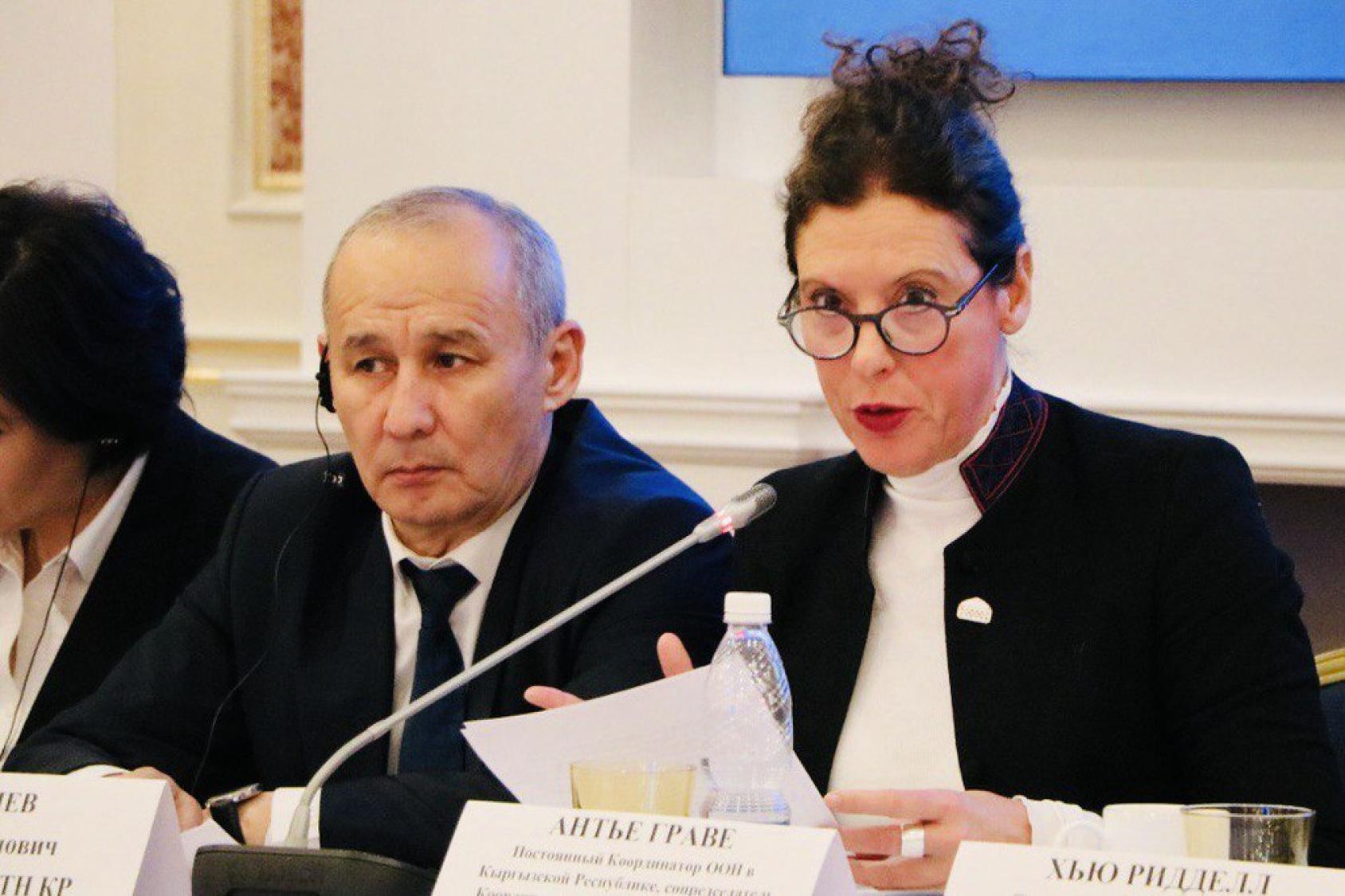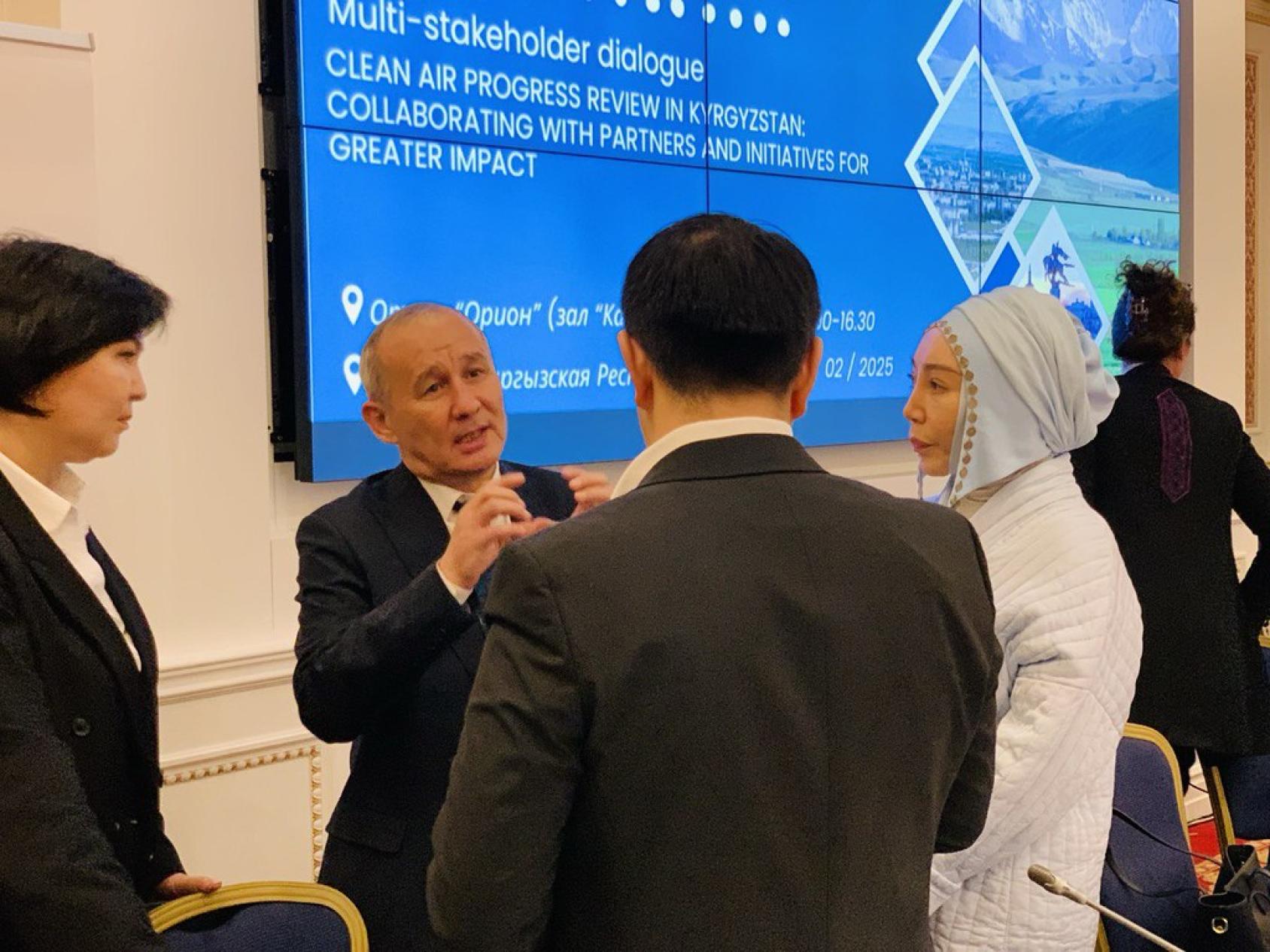Breathing Easier: UN Leads Clean Air Action in Kyrgyzstan

Air pollution has emerged as one of the world’s leading environmental health risks. In Kyrgyzstan, the challenge is particularly acute. In recent years, the country’s capital, Bishkek, has ranked among the most polluted cities globally, with UNICEF reporting in 2023 that “air pollution is the single biggest environmental risk factor for premature death and ill-health.” The challenge is particularly acute in winter when smog blankets the city. The use of coal for domestic heating, low fuel standards and ageing vehicle fleets are the primary sources of air pollution. Other cities across Kyrgyzstan are also showing alarming signs. Poor air quality poses risks to public health, including for children, the elderly and people with preexisting respiratory conditions, who are most vulnerable.
Supporting an integrated response for clean air
The UN in Kyrgyzstan is working closely with the government to tackle this challenge. This partnership began with a groundbreaking UNEP-UNDP air quality assessment in 2022 — the first comprehensive scientific study of its kind in Bishkek.
The findings from this engagement mobilised urgent actions. UNEP’s air quality assessments raised public awareness and strengthened regional cooperation, bridging the space between research and policymaking. Other UN entities contributed to the initiative. OHCHR began promoting the right to clean air as part of the broader human right to a healthy environment, an essential step forward for the UN’s normative agenda. UNICEF and WHO have assessed the health impacts of air pollution on women and children, while IOM has focused on reducing the effects of urban pollution on internal migrants. For its part, UNECE provided secretariat support for the Convention on Long-Range Transboundary Air Pollution, a critical engagement since Kyrgyzstan is a party to the Convention.
The UN team’s engagement validates the urgency for action, generating reports and datasets that provide tangible evidence to transform the conversation about air pollution across the country, including at the highest levels of Government. This contributed a strong, facts-based foundation for policy responses and led to the development of a unified strategy at the beginning of 2024.
Mobilising partnerships

Fast-forward to 2024-2025, and the debate continues to evolve. The UN Resident Coordinator in Kyrgyzstan Antje Grawe, leads the UN team in spurring urgent actions, including from international development partners such as the World Bank and the Asian Development Bank (ADB). This response ensures that clean air action is based on data, science, and a multi-sectoral approach that considers inputs from all stakeholders.
Under the leadership of the UN Resident Coordinator in Kyrgyzstan, the UN system has mobilized the breadth of the expertise of resident and non-resident UN agencies, and those of other development partners in a coordinated, multi-faceted approach to supporting Kyrgyzstan’s clean air agenda.
In 2022, the UN Resident Coordinator, with UNEP’s support, initiated a dedicated working group on air quality, co-chaired by UNEP and ADB, within Kyrgyzstan’s Development Partners Coordination Council (DPCC). The working group has grown to over 30 members, including UN agencies, bilateral partners, international financial institutions, and expert organizations, including the MoveGreen non-profit.
In November 2023, the Group produced a joint policy brief “Tackling Air Pollution in Bishkek: A Road Map to Cleaner Air” that synthesised the main findings on the causes of air pollution in Bishkek and proposed key policy options to address pressing challenges across priority sectors, including domestic heating, transport, electricity generation and waste collection.
The policy brief, which also provided inputs on air quality governance in general, was presented to the members of the Interministerial Commission on Air Pollution, resulting in incorporation of many of the UN and development partners’ recommendations into the government’s 2024-2025 Plan of Priority Measures to Reduce Air Pollution in Bishkek, approved in February 2024.
This marked a critical step forward, reflecting a growing recognition that air quality is a key development issue requiring sustained attention and action.
Clean air progress review: A milestone event
To assess progress and maintain momentum, the UN in Kyrgyzstan and the Ministry of Natural Resources convened a national multi-stakeholder dialogue on clean air action progress on 26 February 2025, organized with support from UNEP. With over 120 participants — including representatives from government, parliament, municipalities, development partners, academia and national NGOs — the dialogue underscored the increasing cross-sectoral commitment to air quality management. The event also provided a platform for the government to present its clean air actions, highlighting notable progress while enabling peer learning from other member states, including from China, Mongolia, and Serbia.
The participants agreed on the importance of annual dialogues and long-term actions and strategies, focusing on tackling the root causes of air pollution. The ministry signalled its engagement to partner with a broad range of stakeholders while the DPCC renewed its commitment to implementing air quality action. The dialogue showed the impactful collaboration between the UN in Kyrgyzstan and national authorities, delivering critical outcomes in research, knowledge-sharing and policy transformations. It also reaffirmed the UN team’s central role in convening a wide range of partners, fostering collaboration and championing science-and data-driven policymaking for sustainable development.

Following this dialogue, the DPCC published an overview of clean air actions in Kyrgyzstan from 2018-2024 with the aim to consolidate development partners' recommendations on air pollution control for decision makers in Kyrgyzstan. The publication was developed with support from UNEP.
The UN Resident Coordinator in Kyrgyzstan, Antje Grawe, reflected that “While there is no quick fix, and measurable improvements in air quality may take time, our collective efforts—driven by data, legislative frameworks, innovation, and community engagement—must be inclusive and ensure that no one is left behind. Let us reaffirm our collective commitment and recognise that, by working together including with the private sector, academia and specialised NGOs, we can turn the vision of clean air into reality for future generations.”
The road to cleaner air is long, but Kyrgyzstan is on the right track. The government is committed to addressing air quality across key sectors, including energy, heating, transport, waste management, and industry. The UN in Kyrgyzstan will support this journey in close cooperation with all relevant national and other partners to promote ambitious clean air action and monitor progress.
To read more about the work of the UN in Kyrgyzstan visit kyrgyzstan.un.org













